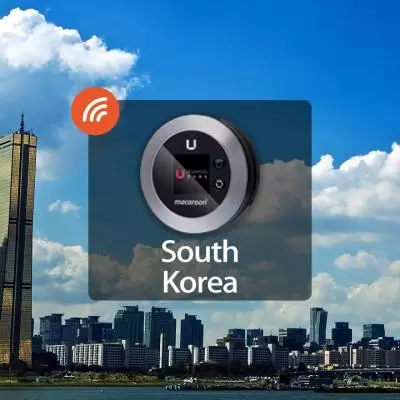Planning a trip to Vietnam? One thing you definitely don't want to overlook is staying connected. In today's digital age, having access to the internet is essential for many travelers. Whether it's staying in touch with loved ones, navigating through unfamiliar cities, or simply sharing your amazing travel experiences on social media, having a reliable wifi connection can make your trip much more convenient and enjoyable.
But with so many options available, how do you choose the right wifi device for your trip to Vietnam? In this blog post, we'll guide you through the different types of wifi devices available, their pros and cons, and help you make an informed decision.
1. Pocket Wifi Devices:
Pocket wifi devices are small, portable routers that allow you to connect multiple devices to the internet. They are a popular choice among travelers because of their convenience and ease of use. These devices can be rented from various providers and usually come with unlimited data plans. Simply turn on the device, connect your devices to the wifi network, and you're good to go.
Pros: Pocket wifi devices offer a stable and secure internet connection, allowing you to stay connected wherever you go. They are also cost-effective, especially if you're traveling in a group or for an extended period of time.
Cons: The main drawback of pocket wifi devices is that they require an additional piece of equipment to carry around. This might be a hassle if you're already traveling with a lot of luggage. Additionally, the battery life of these devices can vary, so make sure to choose one with a long-lasting battery if you plan to use it throughout the day.
2. SIM Cards:
Another popular option for staying connected in Vietnam is to purchase a local SIM card. This allows you to use your own smartphone or tablet as a wifi hotspot, providing internet access to your other devices. SIM cards can be easily purchased at airports, convenience stores, or from mobile network providers.
Pros: Using a local SIM card gives you the freedom to use your own device and access the internet whenever and wherever you want. It also eliminates the need to carry around an extra device.
Cons: The main disadvantage of using a SIM card is that it may not be compatible with all devices. Additionally, you need to ensure that your device is unlocked and supports the local network frequencies. SIM cards also come with limited data plans, so if you're a heavy internet user, you may need to top up frequently.
3. Portable Hotspots:
Portable hotspots, also known as dongles, are small devices that connect to the internet via a mobile network. They create a wifi network that allows you to connect multiple devices. These devices can be purchased or rented from mobile network providers.
Pros: Portable hotspots offer a convenient way to stay connected without the need for a local SIM card. They provide a reliable internet connection and are usually compact and lightweight.
Cons: The main drawback of portable hotspots is that they require a separate data plan. This means you'll need to purchase a data package from a mobile network provider, which can be an additional cost. Additionally, the coverage and speed of the internet connection may vary depending on the location.
4. Hotel Wifi:
Most hotels in Vietnam offer free wifi access to their guests. While this may seem like a convenient option, it's important to note that the quality and speed of hotel wifi can vary significantly. In some cases, the wifi signal may be weak or unreliable, especially in remote areas or budget accommodations.
Pros: Hotel wifi is usually free and readily available, making it a convenient option for checking emails or browsing the web.
Cons: The main disadvantage of relying solely on hotel wifi is that it may not be reliable or fast enough for your needs. If you're planning to use the internet for work, streaming, or uploading large files, you may need a more reliable option.
In conclusion, staying connected during your trip to Vietnam is essential for a smooth and enjoyable experience. Whether you choose a pocket wifi device, a local SIM card, a portable hotspot, or rely on hotel wifi, it's important to consider your specific needs and preferences. We hope this guide has helped you make an informed decision and stay connected throughout your trip. Happy travels!


